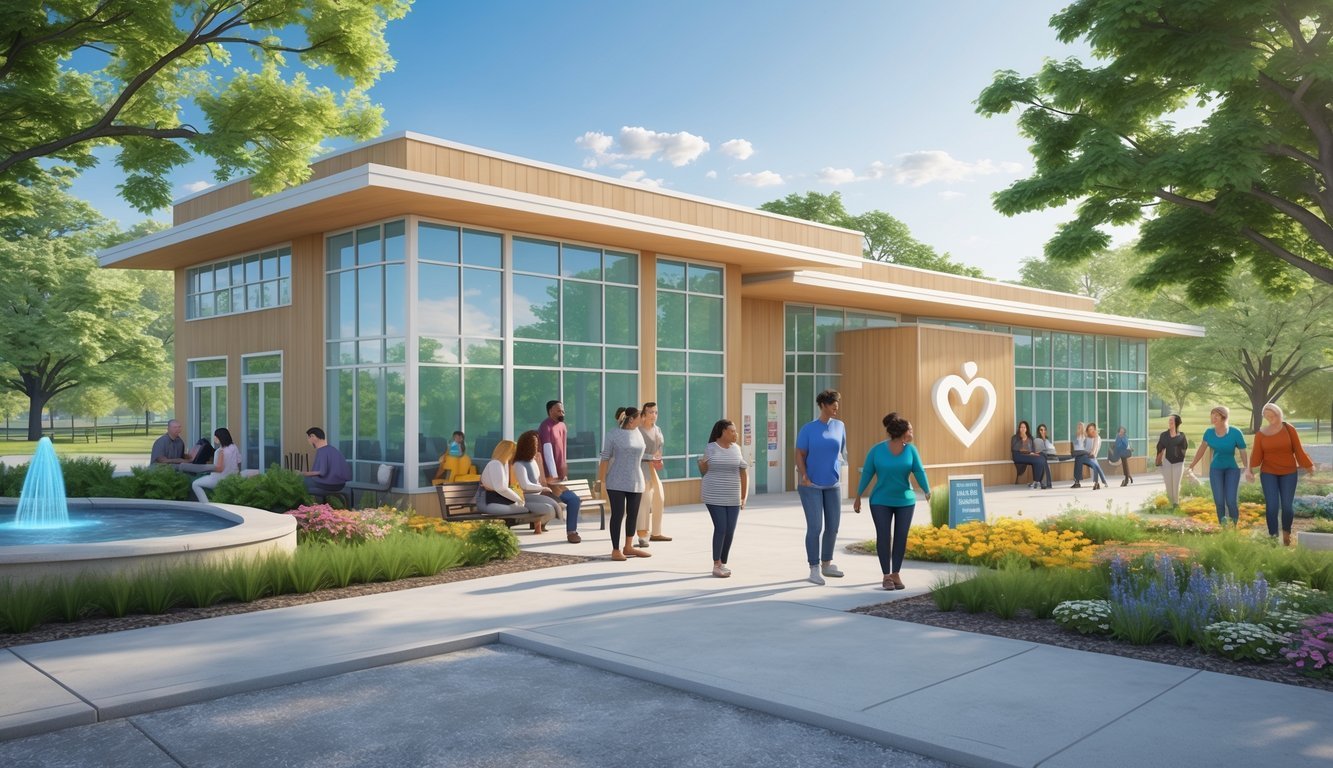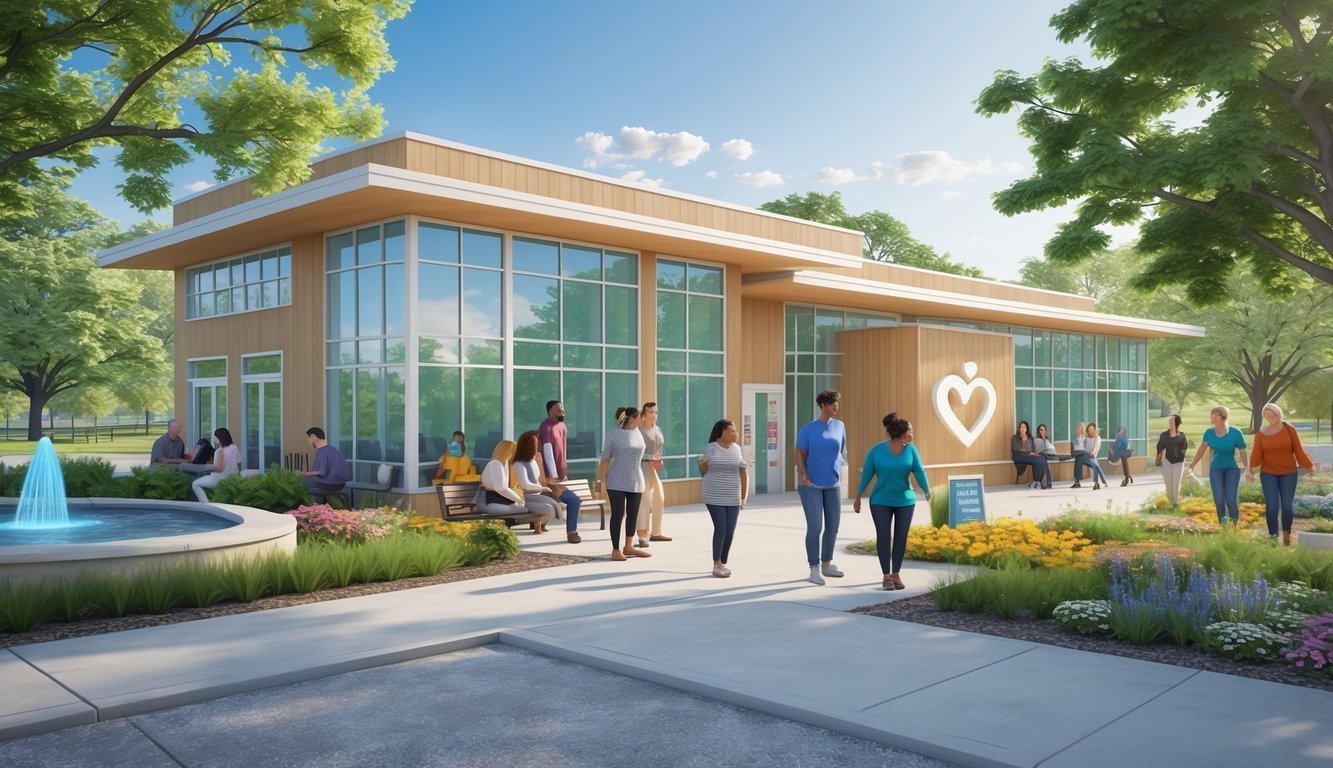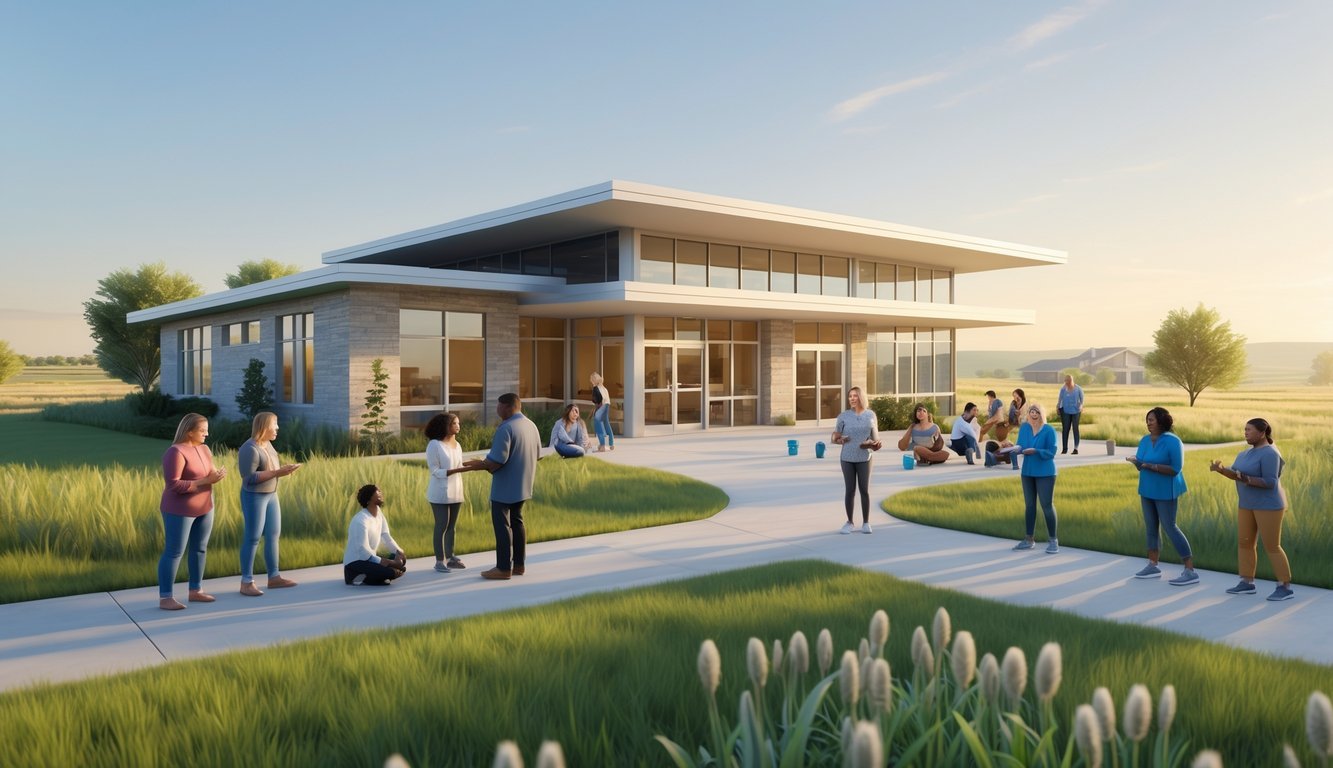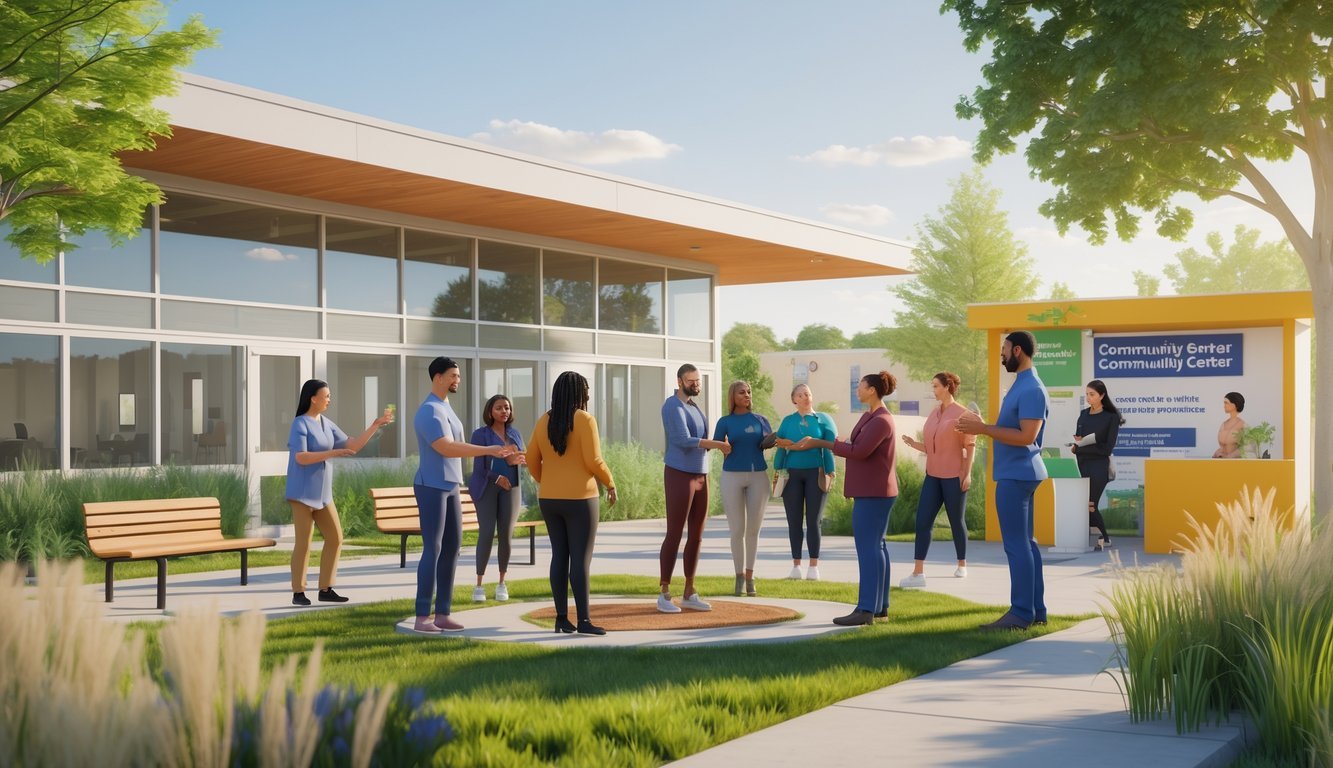PsychNewsDaily Publishers
100 Summit Drive
Burlington, MA, 01803
Telephone: (320) 349-2484
PsychNewsDaily Publishers
100 Summit Drive
Burlington, MA, 01803
Telephone: (320) 349-2484
Nebraska offers numerous mental health resources, including 24/7 crisis hotlines, university counseling, community centers, and support groups, ensuring accessible care for all residents.

Getting mental health support in Nebraska doesn’t have to break the bank. You can find plenty of free mental health services here, thanks to state programs, community centers, hotlines, and online resources. These cover everything from urgent crisis help to ongoing counseling and therapy.

It can feel overwhelming to figure out where to start or what’s available nearby. The Nebraska Family Helpline is open 24/7 for families facing behavioral health issues.
Plenty of community organizations also offer free or affordable mental health care throughout Nebraska.
Maybe you need crisis support or ongoing therapy. Or maybe you just want to talk to someone who gets what you’re going through.
Nebraska has resources to help with all of that.

You’ll find lots of free mental health services in Nebraska through state programs, university centers, and local organizations. These include crisis support, counseling, and special programs.
Each service has its own eligibility rules and ways to keep things confidential.
Nebraska has several free mental health and behavioral health options. The Nebraska Family Helpline runs around the clock for families dealing with youth behavioral challenges.
Universities offer counseling too. University of Nebraska’s Counseling and Psychological Services helps students with mental well-being.
Training and Education Programs are out there as well. Nebraska DHHS offers specialized trainings for mental health professionals on different behavioral health topics.
The Nebraska Resource and Referral System is a statewide database. It connects people and families with services across Nebraska.
Each program has its own rules for who can use the services. University counseling usually requires you to be a current student.
Anyone can call the Nebraska Family Helpline. If your family is dealing with youth behavioral challenges, you can use it.
State-funded programs might ask about your income or where you live. Some require you to be a Nebraska resident.
Community behavioral health centers follow certain licensing rules. Many run as not-for-profit organizations or under local government.
Confidentiality is a big deal for Nebraska’s free mental health services. The Nebraska Family Helpline keeps things private for families looking for help.
University counseling services also stick to strict privacy standards. They protect student information while giving support.
Anonymous options are out there too. Some programs have anonymous HIV testing and confidential services for the LGBTQA+ community.
Crisis support services keep your info private while helping you right away. You don’t have to worry about your privacy or mandatory reporting in most cases.

If you live in Nebraska, you’ve got access to free crisis hotlines, day or night. The 988 Suicide and Crisis Lifeline is the main national number, but state programs also offer confidential support for different situations.
The 988 Suicide and Crisis Lifeline is the go-to number for mental health emergencies. It replaced the old, longer National Suicide Prevention Lifeline.
You can call 988 for:
When you call, trained counselors pick up and help right away. It’s free and always available.
If your emergency is life-threatening, call 911. The 988 line is best for mental health crises that aren’t medical emergencies.
Every crisis hotline in Nebraska keeps your information confidential. You don’t have to give your name to get help.
Confidential support means:
You don’t need insurance or money to use these hotlines. Counselors keep your information private unless you’re in immediate danger.
Lots of people worry about privacy when reaching out for mental health help. Crisis lines make it easier by keeping your calls totally private.
The Nebraska Family Helpline helps families with youth behavioral health challenges. It’s open 24/7, all year.
Family support includes:
You can call 888-866-8660 to reach the Helpline. They guide families through tough situations with their kids.
Parents sometimes feel lost when their child faces mental health challenges. These resources give support and connect families to help in their area.

Local health centers, universities, and organizations offer mental health services in Nebraska. They provide counseling, crisis help, and special programs statewide.
Community mental health centers are the heart of local behavioral health care in Nebraska. They provide individual therapy, group counseling, and crisis help.
Most centers take Medicaid and offer sliding fees based on what you can pay. Their teams include licensed therapists, social workers, and psychiatrists who know the community.
Many centers are part of Nebraska’s Certified Community Behavioral Health Clinic program. This means they meet certain quality standards and can bill Medicaid.
You’ll find these centers in both cities and rural areas. Rural centers often use telehealth to reach people far away.
Charles Drew Health Center and similar clinics offer integrated care, including mental health services. You can get both medical and behavioral health care at these places.
They usually offer:
Here, your primary care doctor and mental health professionals work together. That way, your physical and mental health are both covered.
Most clinics take patients no matter their insurance status. If you can’t pay the full amount, they’ll work with you on a sliding fee scale.
Nebraska’s universities offer mental health services to students, and sometimes to others in the community. The University of Nebraska provides counseling with trained psychologists and counselors.
University services usually include crisis counseling, one-on-one therapy, and group sessions. Some focus on things like anxiety, depression, or academic stress.
Schools also have counselors and social workers. Many partner with community groups to offer more services.
The University of Nebraska Medical Center trains mental health professionals and runs outreach programs. These bring behavioral health care to areas that don’t have enough providers.
Nonprofits play a big role in Nebraska’s mental health support. They often focus on certain groups or types of help.
Faith-based organizations offer counseling with a spiritual approach, but you don’t have to follow their religion to get help.
Nonprofit services often include:
The Nebraska Family Helpline offers 24/7 support for families with youth behavioral health issues. It’s free and connects families to local resources.
Many nonprofits depend on volunteers and donations. They usually provide services for free or at very low cost.
People in Nebraska can join support groups, use digital mental health tools, and find wellness resources for free. These help you connect with others and give you ways to handle stress and boost your mental health.
NAMI Nebraska runs support groups that help reduce anxiety and build self-esteem in places like Omaha, Lincoln, and Grand Island.
Support groups include:
Most groups meet weekly or monthly at community centers, libraries, or churches. You can find schedules through NAMI Nebraska or by calling 211.
Some groups are for certain ages. Young adult groups are for ages 18-30, and there are groups for seniors too.
Peer specialists run many Nebraska support programs. They’ve been through mental health challenges themselves and can share real advice.
Family support options:
Peer-led programs teach coping and stress management. You’ll learn from people who really get it.
Family programs show relatives how to support loved ones with mental health issues. They cover communication, crisis planning, and self-care.
You can find free mental health apps and online support for Nebraska residents. These digital tools are available 24/7.
Popular free apps:
Virtual support groups meet on video calls and forums. You can join from your phone or computer.
Some platforms offer live chat with counselors during a crisis. Text-based support is quick when you need someone to talk to.
Telehealth therapy sessions connect you with licensed therapists over secure video calls. Many offer sliding scale fees based on what you can pay.
All around Nebraska, local communities put on free wellness activities to support mental well-being. Libraries, rec centers, and all sorts of organizations throw these programs together pretty often.
Common wellness activities include:
If you’re interested in building personal resilience, these programs can really help with daily stress. A lot of them teach breathing exercises, progressive muscle relaxation, or simple mindfulness techniques.
You’ll also find things like community gardens and outdoor activities, which offer a natural way to shake off stress. People join gardening, hiking, or walking groups in cities and small towns across Nebraska.
Stress management workshops focus on practical stuff like time management, setting boundaries, and healthy ways to communicate. These classes give you tools to handle stress and take care of your mental health over time.